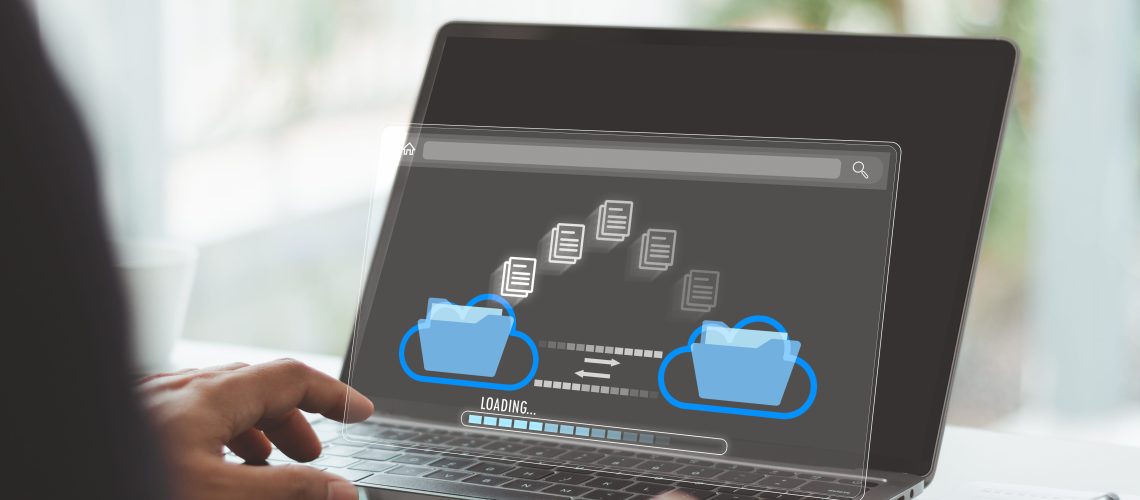Data is the heartbeat of every small business. Customer records, financial data, project files, and communications keep daily operations running. Yet all it takes is a hardware failure, cyberattack, or natural disaster to bring everything to a halt. Without data backup and disaster recovery best practices, a single incident can threaten revenue, reputation, and the business.
Why Strong Backup and Recovery Planning Matters for SMBs
Small and mid-sized businesses (SMBs) are often the most vulnerable to data loss. Budgets and IT teams are smaller, but the stakes are just as high. Research shows that 60% of small businesses close within six months of a significant data loss incident. Whether the cause is ransomware, accidental deletion, or a flood in the server room, the financial and operational fallout can be devastating.
Taking proactive steps to prevent data loss in small businesses isn’t just smart, it’s survival. A robust plan protects critical files and keeps operations running even when something goes wrong. Partnering with experts like Plexus Technology’s trusted IT support in Arizona gives SMBs confidence that backups and recovery are not left to chance.
Key Types of Business Data Backup Solutions
Every small business disaster recovery plan starts with reliable backups. But not all backups are the same. Understanding the three primary methods helps businesses choose the right mix of business data backup solutions.
Full Backups
A complete backup copies every selected file and system image in one package. This makes recovery fast and straightforward, ideal for a quick, comprehensive restore. However, full backups require more storage and take longer to run, so many SMBs schedule them weekly or monthly, complemented by other backup types.
Incremental Backups
An incremental backup captures only the changes made since the last backup. This reduces storage use and speeds up daily operations. During recovery, the system restores the previous full backup and each subsequent incremental set. Incremental backups are efficient and cost-effective, but demand careful management to ensure all increments are intact.
Cloud Backups
Cloud services offer secure data backup for businesses and add geographic separation from local risks such as fire or theft. With offsite backup and cloud recovery options, data is encrypted and stored in professionally managed data centers, allowing fast restoration from virtually anywhere. For many SMBs, cloud backups have become the backbone of business data backup solutions.
Combining these methods, such as weekly full backups with daily incremental and continuous cloud replication, provides balanced protection and flexibility.
Building a Small Business Disaster Recovery Plan That Works
Backing up data is only half the battle. The next step is a disaster recovery strategy for small companies that ensures business continuity.
A successful small business disaster recovery plan defines the process for restoring systems and resuming operations after a disruption. Two key metrics guide the planning:
- Recovery Time Objective (RTO): Your system’s most extended acceptable period is to remain offline before restoring normal operations.
- Recovery Point Objective (RPO): The maximum amount of data, measured in time since the last backup, that your business can afford to lose during a disruption.
For example, an RTO of four hours and an RPO of 15 minutes means systems must be restored within four hours, and no more than 15 minutes of data can be lost.
Regular testing is equally critical. Simulating a real outage verifies that the plan works and identifies gaps before an emergency. Scheduling quarterly or semi-annual tests and automating failover wherever possible builds confidence that recovery will succeed when it counts.
Reducing Human Error Through Automation and Managed Backup Services
Even the best data backup and disaster recovery best practices can fail if they rely solely on manual steps. Human error is a hidden threat, responsible for roughly 22% of downtime incidents. Automating backups removes that risk.
Modern platforms can encrypt files, transfer them to cloud storage, and verify integrity on a preset schedule. Automated alerts and reporting keep IT managers informed without daily intervention.
Managed backup services for SMBs provide round-the-clock monitoring and maintenance. A partner like Plexus Technology offers disaster recovery IT support that ensures backups run correctly, updates remain current, and recovery drills are performed on time. Offloading these tasks frees small teams to focus on core business activities while strengthening resilience.
The Role of IT Continuity Planning for SMBs
Backup and recovery are essential, but they fit within a broader strategy of IT continuity planning for SMBs. This approach anticipates a range of disruptions, from regional power outages to cyberattacks, and outlines how to maintain critical operations.
Effective continuity planning evaluates every technology layer: servers, networks, applications, and communications. It also identifies dependencies like payment systems or customer portals that must remain available or be restored first. Including key service providers in planning sessions ensures nothing is overlooked.
Plexus Technology integrates continuity planning into comprehensive managed IT services, aligning data protection with everyday IT support. From business communication systems to accounting & financial IT services and IT services for law firms or non-profit organizations, continuity planning ensures that each function can survive and recover quickly.
Why Plexus Technology Makes a Difference
Arizona SMBs face unique challenges: desert storms, heat-related outages, and fast-growing cybercrime. Plexus Technology understands these risks firsthand and helps local companies implement best practices for data backup and disaster recovery. Whether designing secure data backup for business, deploying offsite backup and cloud recovery options, or providing 24/7 disaster recovery IT support, Plexus offers proven expertise with a local presence.
Instead of waiting for an emergency to reveal weaknesses, business leaders can schedule an IT consult to review their current environment, test recovery readiness, and map next steps toward comprehensive resilience.
Conclusion: Secure Your Data, Secure Your Business
A single incident can undo years of work. From ransomware attacks to hardware failures, threats to business data are constant and unpredictable. The good news is that preparation pays off. Companies with a tested recovery plan are 96% more likely to fully resume operations after a data loss event.
By combining multiple business data backup solutions, including full, incremental, and cloud, building a robust small business disaster recovery plan, automating processes to reduce human error, and investing in managed backup services for SMBs, small businesses can withstand disruptions that might otherwise be catastrophic.
Protecting data isn’t a one-time task; it’s an ongoing commitment. With expert guidance from Plexus Technology and thoughtful IT continuity planning for SMBs, Arizona businesses can stay resilient, secure, and ready for whatever comes next.


















